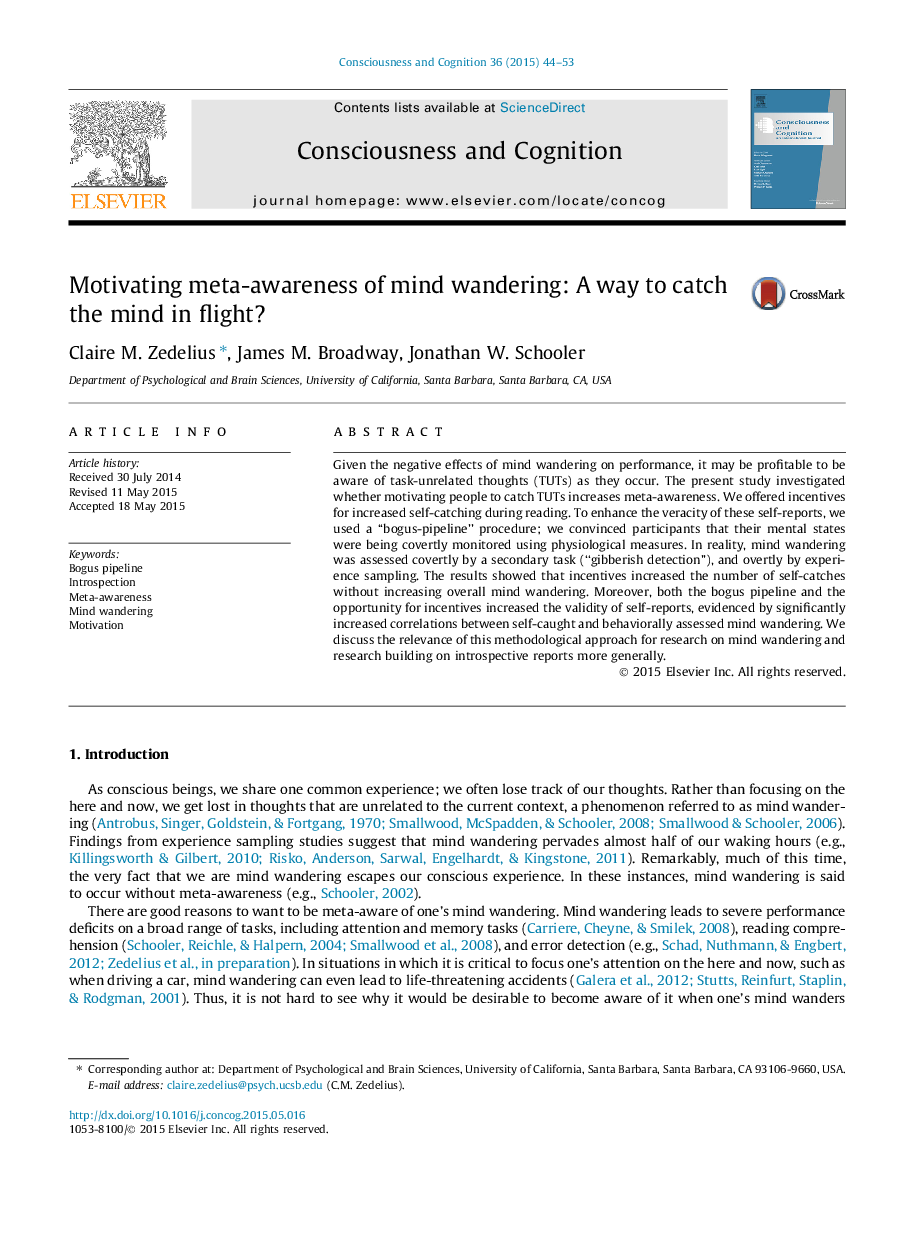| Article ID | Journal | Published Year | Pages | File Type |
|---|---|---|---|---|
| 7289007 | Consciousness and Cognition | 2015 | 10 Pages |
Abstract
Given the negative effects of mind wandering on performance, it may be profitable to be aware of task-unrelated thoughts (TUTs) as they occur. The present study investigated whether motivating people to catch TUTs increases meta-awareness. We offered incentives for increased self-catching during reading. To enhance the veracity of these self-reports, we used a “bogus-pipeline” procedure; we convinced participants that their mental states were being covertly monitored using physiological measures. In reality, mind wandering was assessed covertly by a secondary task (“gibberish detection”), and overtly by experience sampling. The results showed that incentives increased the number of self-catches without increasing overall mind wandering. Moreover, both the bogus pipeline and the opportunity for incentives increased the validity of self-reports, evidenced by significantly increased correlations between self-caught and behaviorally assessed mind wandering. We discuss the relevance of this methodological approach for research on mind wandering and research building on introspective reports more generally.
Related Topics
Life Sciences
Neuroscience
Cognitive Neuroscience
Authors
Claire M. Zedelius, James M. Broadway, Jonathan W. Schooler,
